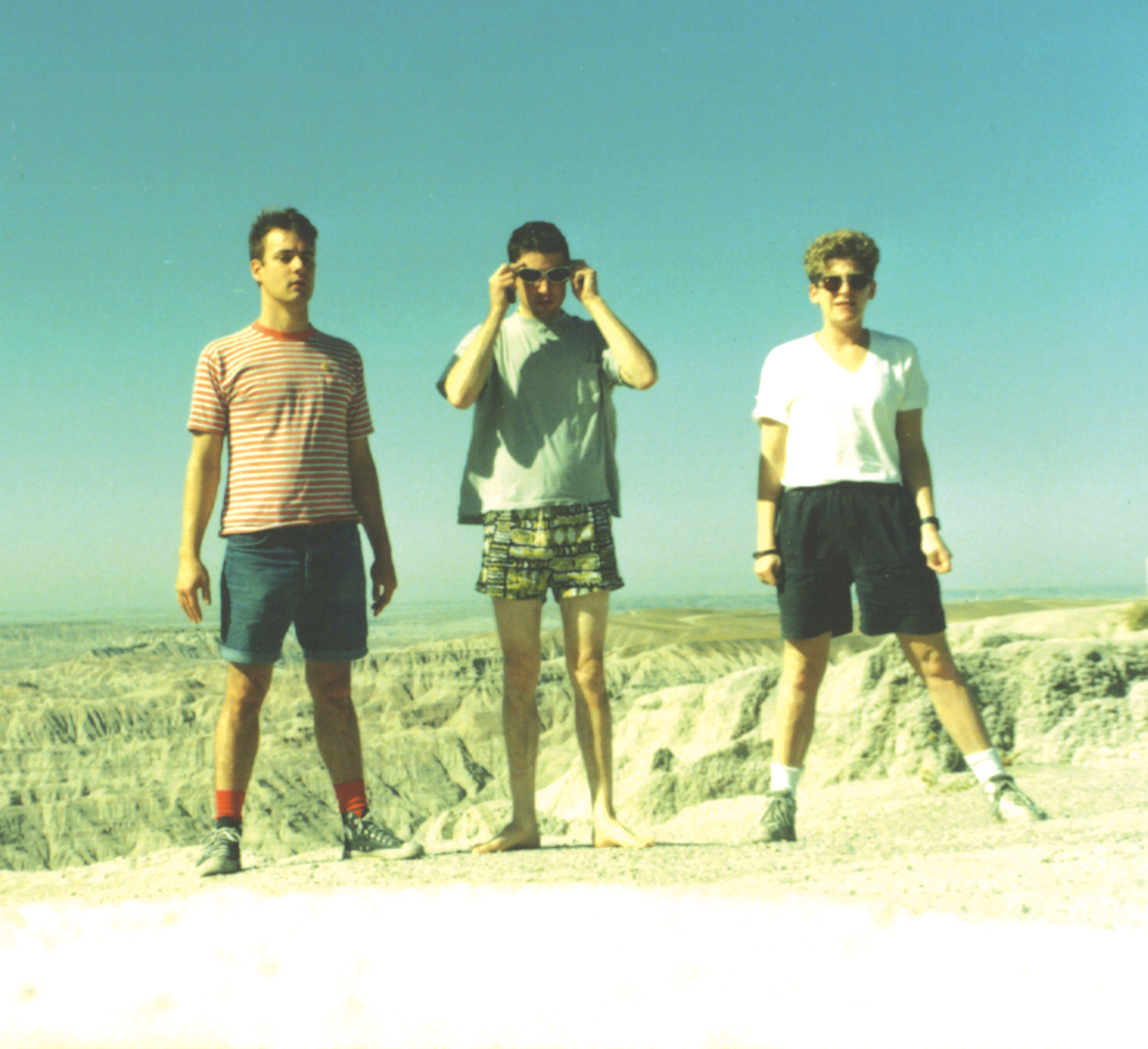Considering the band could barely play their instruments when they recorded ‘Beat Happening’, could Johnson ever have conceived people writing books about it back then? “Well, it wasn’t my idea to write these books,” he says slightly defensively over the phone from his Olympia home. “On the other hand, I just assumed when we were making these records that they were classics. I didn’t see any point in making them if they weren’t going to be. I always felt that music should be timeless. I mean, I appreciate music of the moment and pop music – I love pop music – but I also feel that what we excelled at is creating songs that just stand alone.”
Testament to that fact is ‘Look Around’, a long-overdue, career-spanning double LP anthology set to be released by Domino next month, with songs hand-picked and chronologically sequenced by the group from 1984 debut single ‘Our Secret’ right up until 2000 anomaly ‘Angel Gone’, released after eight years of inactivity. “They’re the songs we thought would be a good collection and representation of what we do,” Johnson offers, simply.
Taking in influences ranging from the Cramps to Young Marble Giants, one of the most striking things about the weird and wonderful 23-track collection is the aesthetic consistency from the first track to the last. Sure, fidelity improves working through the songs in chronological order and the compositions become gradually more ambitious but the music itself remains a study in lo-fi simplicity shot through with sexual tension; a template that would be followed by Sebadoh, Pavement and any number of other Portastudio-wielding followers. Guitar lines are uniformly straightforward, drum rhythms less-than-rudimentary and bass guitar absent altogether. “I don’t know whether it was intentional though,” says Johnson. “We just didn’t have a choice. We made music that we made – and that’s just the way it is. We were always working to the edge of our abilities.”
Calvin Johnson was born 1st November 1962 in Olympia. By the age of 15, he was already volunteering at his local community radio station, KAOS-FM, operating out of the Evergreen State College nearby. The station’s music director, John Foster, took Johnson under his wing, becoming his mentor. Foster championed independent music at KAOS, reportedly insisting that 80 percent of music for broadcast had to have been released on independent labels. He also founded an independent music magazine, Op, which was to become a key point of exposure for the local cassette release scene.
Johnson immediately embraced Foster’s socio-political view of music and his circumvention of the mainstream. Eventually, he landed a weekly slot on air playing punk and through his show, the teen discovered UK post-punk and key Rough Trade signees like the Raincoats, Delta 5 and the Slits; female-fronted bands concerned more with making interesting music than guitar theatrics. Following on from a temporary relocation to Maryland for his senior year at high school and an introduction to the bourgeoning punk scene there – and a chance encounter with Minor Threat front man Ian MacKaye – Johnson resolved to start a label: K Records. The scene was set for Beat Happening’s arrival.
Heather Lewis moved into the frame when her own band had their first cassette put out by Johnson, who was by this point already playing in a couple of groups and something of a celebrity around Olympia thanks to some fearless performances and a curious penchant for 1960s retro-kitsch. On stage, Johnson had taken to fey theatrics like rubbing his belly, raising his hands to his shoulders and tugging on his too-tight t-shirt.
He and Lewis soon started playing together in yet another outfit – Laura, Heather and Calvin – who just so happened to play a show in front of one Bret Lunsford. “That performance was so riveting,” says Lunsford in Our Band Could Be Your Life. “It was amazing how naked the band let themselves be and yet normal at the same time – as much as you can say that Calvin onstage is normal.”
